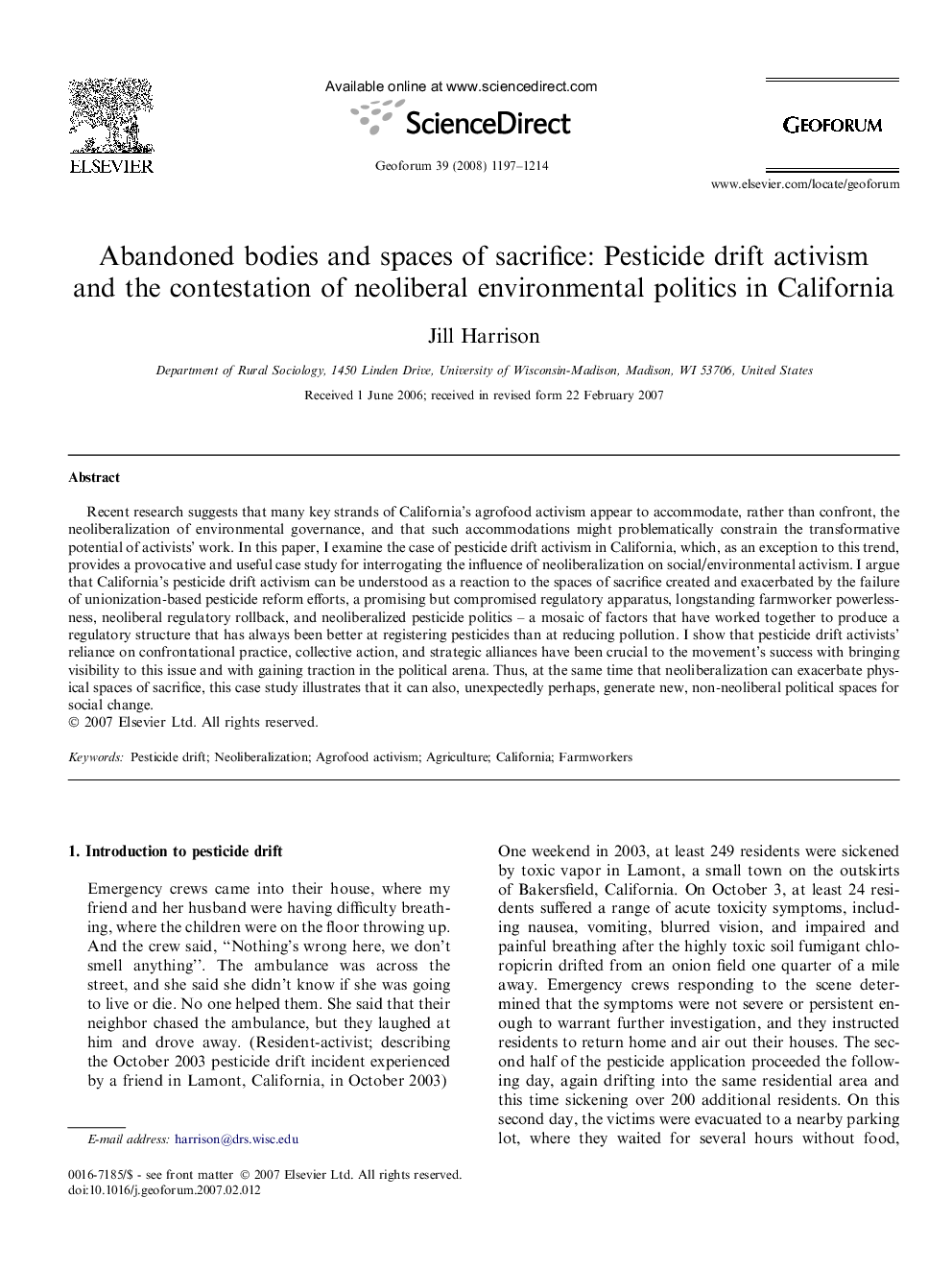| Article ID | Journal | Published Year | Pages | File Type |
|---|---|---|---|---|
| 5075116 | Geoforum | 2008 | 18 Pages |
Abstract
Recent research suggests that many key strands of California's agrofood activism appear to accommodate, rather than confront, the neoliberalization of environmental governance, and that such accommodations might problematically constrain the transformative potential of activists' work. In this paper, I examine the case of pesticide drift activism in California, which, as an exception to this trend, provides a provocative and useful case study for interrogating the influence of neoliberalization on social/environmental activism. I argue that California's pesticide drift activism can be understood as a reaction to the spaces of sacrifice created and exacerbated by the failure of unionization-based pesticide reform efforts, a promising but compromised regulatory apparatus, longstanding farmworker powerlessness, neoliberal regulatory rollback, and neoliberalized pesticide politics - a mosaic of factors that have worked together to produce a regulatory structure that has always been better at registering pesticides than at reducing pollution. I show that pesticide drift activists' reliance on confrontational practice, collective action, and strategic alliances have been crucial to the movement's success with bringing visibility to this issue and with gaining traction in the political arena. Thus, at the same time that neoliberalization can exacerbate physical spaces of sacrifice, this case study illustrates that it can also, unexpectedly perhaps, generate new, non-neoliberal political spaces for social change.
Related Topics
Social Sciences and Humanities
Economics, Econometrics and Finance
Economics and Econometrics
Authors
Jill Harrison,
